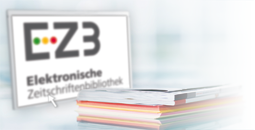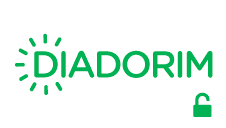DIGITAL TECHNOLOGIES, AI AND TEACHING:
MAPPING LITERACIES IN THE LIGHT OF A CYBER-SOCIAL PERSPECTIVE
DOI:
https://doi.org/10.47677/gluks.v25i02.543Keywords:
Digital Literacies, Artificial Intelligence, Language Education, Cyber-social learningAbstract
Generative AI technologies have impacted the forms of interaction, production, and distribution of texts, transforming digital literacy practices and bringing significant implications for language education. Therefore, based on four official documents on the subject, this article aims to investigate, map, and critically reflect on definitions, uses, and possible impacts of Artificial Intelligence on education. The work adopts a qualitative, exploratory and documentary approach, and, situated in the field of Applied Linguistics, articulates contributions from studies on digital literacies (Lankshear; Knobel, 2015; Dudeney; Hockly; Pegrum, 2016), the cyber-social perspective (Cope and Kalantzis, 2024; Silva, 2023), as well as about the impacts of AI on education (Alves, 2023; Tzirides et al., 2023). The initial exploration of the data reveals that, although the documents address recommendations, contributions, and risks regarding the uses of AI in education, there are still gaps regarding a more plural view of AI, teacher training, and its use in different realities. Therefore, the need to expand the dialogue on the implementation of AI in education is underscored, given its possible applications and implications for agency, ethical uses, data protection, and the worsening of digital poverty.
Downloads
References
ALMEIDA, M. E. Informática e formação de professores. Secretaria de Educação a Distância. Brasília: Ministério da Educação, SEED, 2000.
ALVES, L. (Org.). Inteligência artificial e educação: refletindo sobre os desafios contemporâneos. Salvador: EDUFBA; Feira de Santana: UEFS Editora, 2023.
BENTLEY, S. V.; NAUGHTIN, C. K.; MCGRATH, M. J. et al. The digital divide in action: how experiences of digital technology shape future relationships with artificial intelligence. AI Ethics, v. 4, p. 901–915, 2024. DOI: https://doi.org/10.1007/s43681-024-00452-3.
BEZERRA, F. A. S.; FARIAS, J. M. S. de; SOUSA, R. C. S. de. Ecologias digitais de aprendizagem na era da Inteligência Artificial: multimodalidade, multiletramentos, tecnologia e ética. Revista Linguagem em Foco, Fortaleza, v. 16, n. 2, p. 10–29, 2024.
BRASIL. Ministério da Educação. Base Nacional Comum Curricular. Brasília, 2018.
BRASIL. Ministério da Educação. BNCC da Computação. Brasília, 2022.
CENTRO DE INOVAÇÃO PARA A EDUCAÇÃO BRASILEIRA. CIEB: Notas Técnicas - Inteligência artificial na educação básica: novas aplicações e tendências para o futuro. São Paulo: CIEB, 2024.
COPE, Bill; KALANTZIS, Mary. On cyber-social learning: a critique of artificial intelligence in education. In: KOURKOULOU, Theodora; TZIRIDES, Anastasia O.; COPE, Bill; KALANTZIS, Mary (Ed.). Trust and inclusion in AI-mediated education: where human learning meets learning machines. Cham: Springer, 2024. cap. 1, p. 3–34. DOI: https://doi.org/10.1007/978-3-031-64487-0_1.
COPE, Bill; KALANTZIS, Mary. On cyber-social meaning: the clause, revised. The International Journal of Communication and Linguistic Studies, v. 21, n. 2, p. 1–18, 2023. DOI: https://doi.org/10.18848/2327-7882/CGP/v21i02/1-18.
DUDENEY, Gavin; HOCKY, Dudeney; PEGRUM, Mark, Letramentos Digitais. São Paulo: Parábola Editorial, 2016
EUROPEAN COMMISSION: EUROPEAN EDUCATION AND CULTURE EXECUTIVE AGENCY. AI report: by the European Digital Education Hub’s Squad on artificial intelligence in education. Publications Office of the European Union, 2023. Disponível em: https://data.europa.eu/doi/10.2797/828281. Acesso em: 10 jun. 2025.
FERNANDES, A. B.; NARCISO, R.; BRAGA, A. da S.; CARDOSO, A. de S.; LIMA, E. S. da C.; VILALVA, E. A. de M. M.; LIMA, S. do S. A. A ética no uso de inteligência artificial na educação: implicações para professores e estudantes. Revista Ibero-Americana de Humanidades, Ciências e Educação, v. 10, n. 3, p. 346–361, 2024. DOI: https://doi.org/10.51891/rease.v10i3.13056.
HISSA, D. L. A. O letramento digital e a docência: da aplicação de recursos à convergência cultural. Olhares & Trilhas, Uberlândia, v.?23, n.?2, p.?484–503, 2021. DOI: https://doi.org/10.14393/OT2021v23.n.2.60099. Disponível em: https://seer.ufu.br/index.php/olharesetrilhas/article/view/60099. Acesso em: 10 jun. 2025
KALANTZIS, M.; COPE, B. Literacy in the time of artificial intelligence. Reading Research Quarterly, v. 60, 2024. DOI: 10.1002/rrq.591.
KNOBEL, M.; LANKSHEAR, C. Digital Literacy and Digital Literacies. Nordic Journal of Digital Literacy, 2006-2016, p. 8-20, 2015.
LIMA, Carolina Vianini Amaral. “Eu faço o que posso”: experiências, agência e complexidade no ensino de língua inglesa. 2014. 263f. Tese (Doutorado em Estudos Linguísticos) – Faculdade de Letras, Universidade Federal de Minas Gerais, Belo Horizonte, 2014. Disponível em: https://repositorio.ufmg.br/handle/1843/MGSS-9W7M9H. Acesso em: 02 jun. 2025.
MONTE MÓR, W. Crítica e letramentos críticos: reflexões preliminares. In: ROCHA, C. H.; MACIEL, R. F. (Orgs.). Língua estrangeira e formação cidadã: por entre discursos e práticas. Campinas: Pontes, 2015. 2. ed., ed. expandida, cap. 2, p. 31-50.
TZIRIDES, A. O.; SAINI, A.; ZAPATA, G.; SEARSMITH, D.; COPE, B.; KALANTZIS, M.; CASTRO, V.; KOURKOULOU, T.; JONES, J.; SILVA, R.; WHITING, J.; KASTANIA, N. P. Generative AI: Implications and Applications for Education, 2023. DOI: 10.48550/arXiv.2305.07605. Disponível em: https://arxiv.org/abs/2305.07605. Acesso em: 10 jun. 2025.
PEGRUM, M. Generative AI. Digital Learning (online), 2024. Disponível em: https://markpegrum.com/tools-for-digital-learning/generative-ai/
PUENTEDURA, R. R. SAMR: A contextualized introduction. Lecture at Pine Cobble School. 2013. Disponível em: http://www.hippasus.com/rrpweblog/archives/2013/08/22/SAMR_ContextualizedIntroductio.pdf. Acesso em: 10 jun. 2025.
RIBAS, M. M. G. Repensando os letramentos pela perspectiva pós-humanista. Trabalhos em Linguística Aplicada, v. 58, p. 612–636, 2019.
RÖHE, A.; SANTAELLA, L. Confusões e dilemas da antropomorfização das inteligências artificiais. TECCOGS – Revista Digital de Tecnologias Cognitivas, n. 28, p. 67–75, 2023.
SANTOS, Z. B. dos; PAIVA, F. A.; MENDES, M. T. Reflexões teóricas sobre letramentos e multimodalidade em tempos de IA: agência e design decoloniais. Revista Linguagem em Foco, Fortaleza, v. 16, n. 2, p. 30-50, 2024. Disponível em: https://revistas.uece.br/index.php/linguagememfoco/article/view/13117. Acesso em: 05 jun. 2025.
SILVA, Rodrigo Abrantes da. Expansão ontoepistemológica e práticas pedagógicas na sociedade digital: novas perspectivas para o processo de letramentos. 2024. Tese (Doutorado em Estudos Lingüísticos e Literários em Inglês) - Faculdade de Filosofia, Letras e Ciências Humanas, Universidade de São Paulo, São Paulo, 2024. doi:10.11606/T.8.2024.tde-03072024-183251. Acesso em: 10 jun. 2025.
TAVARES, L. A.; MEIRA, M. C.; AMARAL, S. F. do. Inteligência Artificial na Educação: Survey / Artificial Intelligence in Education: Survey. Brazilian Journal of Development, v. 6, n. 7, p. 48699–48714, 2020. DOI: 10.34117/bjdv6n7-496. Disponível em: https://ojs.brazilianjournals.com.br/ojs/index.php/BRJD/article/view/13539. Acesso em: 15 abr. 2025.
TURING, A. M. Computing machinery and intelligence. Mind, Oxford, v. 59, n. 236, p. 433–460, out. 1950. DOI: https://doi.org/10.1093/mind/LIX.236.433.
U.S. DEPARTMENT OF EDUCATION, Office of Educational Technology. Artificial Intelligence and Future of Teaching and Learning: Insights and Recommendations. Washington, DC, 2023.
UNESCO. Guia para a IA generativa na educação e na pesquisa. Paris: UNESCO, 2024. 48 p. Disponível em: https://unesdoc.unesco.org/ark:/48223/pf0000390241. Acesso em: 1 jun. 2025.
Downloads
Published
How to Cite
Issue
Section
License
Copyright (c) 2025 Gláuks - Revista de Letras e Artes

This work is licensed under a Creative Commons Attribution 4.0 International License.














